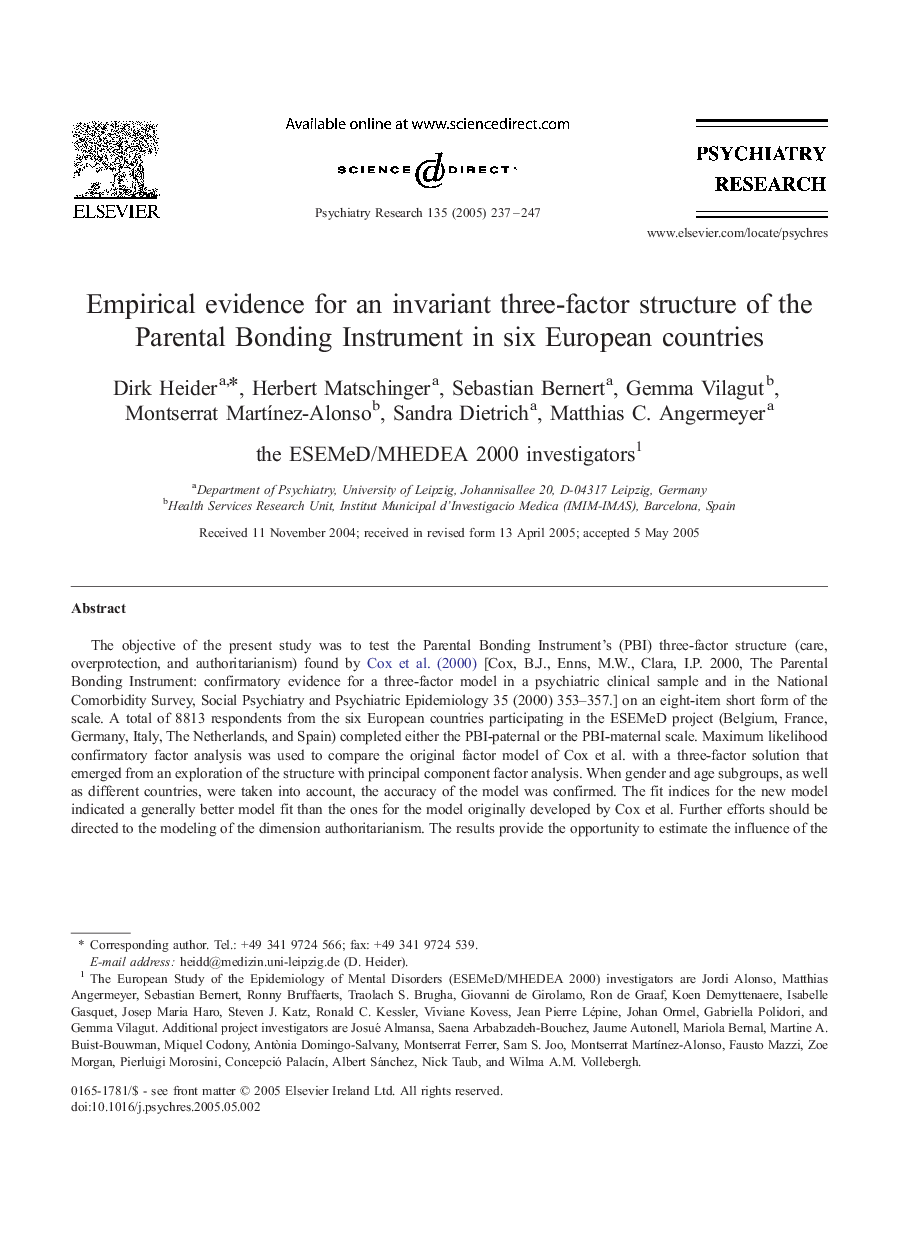| کد مقاله | کد نشریه | سال انتشار | مقاله انگلیسی | نسخه تمام متن |
|---|---|---|---|---|
| 10305128 | 546059 | 2005 | 11 صفحه PDF | دانلود رایگان |
عنوان انگلیسی مقاله ISI
Empirical evidence for an invariant three-factor structure of the Parental Bonding Instrument in six European countries
دانلود مقاله + سفارش ترجمه
دانلود مقاله ISI انگلیسی
رایگان برای ایرانیان
کلمات کلیدی
موضوعات مرتبط
علوم زیستی و بیوفناوری
علم عصب شناسی
روانپزشکی بیولوژیکی
پیش نمایش صفحه اول مقاله

چکیده انگلیسی
The objective of the present study was to test the Parental Bonding Instrument's (PBI) three-factor structure (care, overprotection, and authoritarianism) found by Cox et al. (2000) [Cox, B.J., Enns, M.W., Clara, I.P. 2000, The Parental Bonding Instrument: confirmatory evidence for a three-factor model in a psychiatric clinical sample and in the National Comorbidity Survey, Social Psychiatry and Psychiatric Epidemiology 35 (2000) 353-357.] on an eight-item short form of the scale. A total of 8813 respondents from the six European countries participating in the ESEMeD project (Belgium, France, Germany, Italy, The Netherlands, and Spain) completed either the PBI-paternal or the PBI-maternal scale. Maximum likelihood confirmatory factor analysis was used to compare the original factor model of Cox et al. with a three-factor solution that emerged from an exploration of the structure with principal component factor analysis. When gender and age subgroups, as well as different countries, were taken into account, the accuracy of the model was confirmed. The fit indices for the new model indicated a generally better model fit than the ones for the model originally developed by Cox et al. Further efforts should be directed to the modeling of the dimension authoritarianism. The results provide the opportunity to estimate the influence of the extracted factors on mental disorders in different countries. The application of the short form of the PBI seems suitable primarily for large epidemiological studies.
ناشر
Database: Elsevier - ScienceDirect (ساینس دایرکت)
Journal: Psychiatry Research - Volume 135, Issue 3, 30 June 2005, Pages 237-247
Journal: Psychiatry Research - Volume 135, Issue 3, 30 June 2005, Pages 237-247
نویسندگان
Dirk Heider, Herbert Matschinger, Sebastian Bernert, Gemma Vilagut, Montserrat MartÃnez-Alonso, Sandra Dietrich, Matthias C. Angermeyer, the ESEMeD/MHEDEA 2000 investigators the ESEMeD/MHEDEA 2000 investigators,